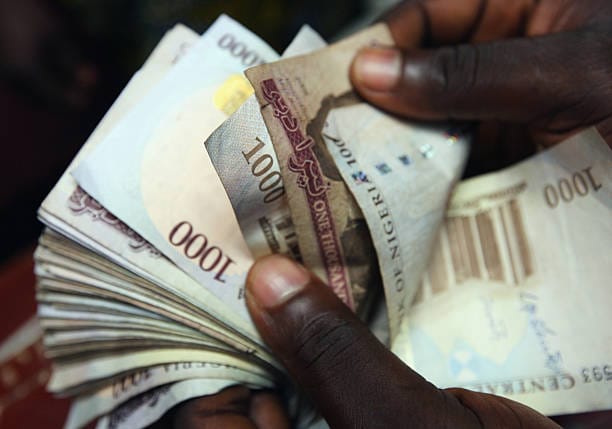Nigeria Faces Record Inflation Rate: The Highest in Nearly Three Decades
[ad_1]
Lagos, Nigeria – Nigeria’s inflation rate has surged to 33.2% in March, marking the highest level seen in nearly 30 years, reports the National Bureau of Statistics (NBS). This represents a significant increase of 1.5% from the previous month, underscoring a continuing economic challenge.
The NBS has identified food as the primary driver of this inflation spike, attributed to soaring costs of staples such as bread, grains, dairy, eggs, meat, and vegetable oil. Compounded by rising energy costs, manufacturers are facing increased expenses to power production lines and transport goods, impacting the broader economy.
Despite the naira’s recent recovery against the US dollar—strengthening significantly after a steep drop to 1,825 naira to $1 just over a month ago—this has not yet translated into reduced prices for goods and services. The naira has now stabilized somewhat at 1,140 to $1, but the effects of its prior depreciation continue to ripple through the market.
In response to the escalating inflation, the Central Bank of Nigeria has raised borrowing rates twice in the past two months. The goal is to curb inflation by limiting access to capital, though the positive impacts of these adjustments have yet to materialize.
Amid these economic pressures, the government has taken bold steps to manage the crisis, including a recent decision to hike electricity tariffs by more than 300% for high consumption users, such as businesses and affluent households. This move aims to reduce the burden of electricity subsidy payments and bolster government savings. Nevertheless, the tariff increase has stirred discontent among Nigerians outside these categories, who report rising costs as well.
As Nigeria, Africa’s largest economy, grapples with an intense economic downturn that has pushed more citizens into poverty, the government assures that its current policies and economic measures will stabilize the economy in time. However, with many Nigerians struggling with diminished purchasing power and dwindling savings, the path to economic stability appears fraught with challenges.
[ad_2]
Source link

